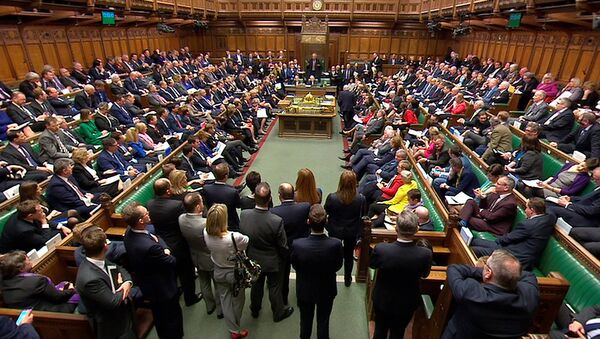Britain's Parliamentary Select Committee for exiting the European Union has issued what it sees as the bench-marks for assessing the success of the United Kingdom's negotiations with Brussels on the formulation of a new relationship with the continental bloc. In reference to its exchanges with the EU's chief negotiator Michel Barnier, the cross-party committee said that the relationship between London and Brussels will rest on four "pillars" which will be essential for judging the final success or failure of Brexit.
Trade
Among the most urgent issues facing Britain's global trading relationships before it exits the EU is the need to "roll over" the more than 40 trade agreements it is a party to with over 70 countries. As a member of the Customs Union and the Single Market, Britain conducts its trade in concert with the 27 other EU member states and not as an individual country. This means that the terms of many of the agreements, which will have to become bilateral arrangements may also need to be renegotiated.
On March 29, International Trade Secretary Liam Fox in a radio interview with the BBC that the 40-odd agreements would hopefully be in place by the 2020 and that the governments of the relevant countries had been "spoken to," despite there being exactly a year left before the transitional period begins in which the UK exits the EU.
One year from today we will honour the democratic will of the British people and take back control of our money, laws and borders by leaving the EU #RoadtoBrexit #1yrArticle50
— Dr Liam Fox MP (@LiamFox) March 29, 2018
.@LiamFox in fantasy land again on @BBCr4 #r4today. Estimated increases in trade from FTAs with Australia, Brazil, Canada, China, India, Indonesia, NZ &US would be less than 5%. Leaving Single Market will be associated with long-term reduction in total UK trade of at least 22%.
— Caroline Lucas (@CarolineLucas) March 29, 2018
Committee members also called for Britain to remain a party to many of the EU's product standards bodies such as the European Medicines Agency, the European Chemicals Agency and European Aviation Safety Agency. "Regulatory Convergence" with EU industry standards was given particular priority for British companies and manufacturers.
Justice
The continued administration of justice between the EU and Britain has also proved a particularly fraught question for Prime Minister Theresa May, who has faced significant pressure on her government to withdraw the United Kingdom from the jurisdiction of the European Court of Justice, especially after agreeing to remain party to it during the transition period. Cross-party members have urged the government nonetheless to maintain Britain's current membership of Europol and the European Arrest Warrant System in order to continue effectively policing transnational crime and terrorism. It also encourages continued high-level data-sharing with EU member states.
Security Cooperation
The report calls for Britain to seek to replicate its domestic security and immigration relationship with Europe as much as possible, giving special attention to the Irish border, which the authors insisted must remain frictionless and free of any customs or infrastructure that would hinder or lessen the flow of trade and people between the United Kingdom and the Republic of Ireland. Any future immigration system, the Committee said, should not be any impediment to the free flow of goods, services and people, despite the government's undertaking to end freedom of movement. In combatting terrorism, the need to maintain the frictionless flow of data between the two sides was also seen as being of paramount importance.
Foreign Affairs
The Committee members called for Britain to maintain a seat at the table in the formulation of the EU's Common Foreign Policy and to be able to participate fully in coordinated European action on key international issues.
Previous Parliamentary reports have suggested emulating the defense relationship of several non-EU countries with the European Union such as Norway and the United States. Neither, however, have a direct say in the forming of common EU policy by virtue of not being EU members.



